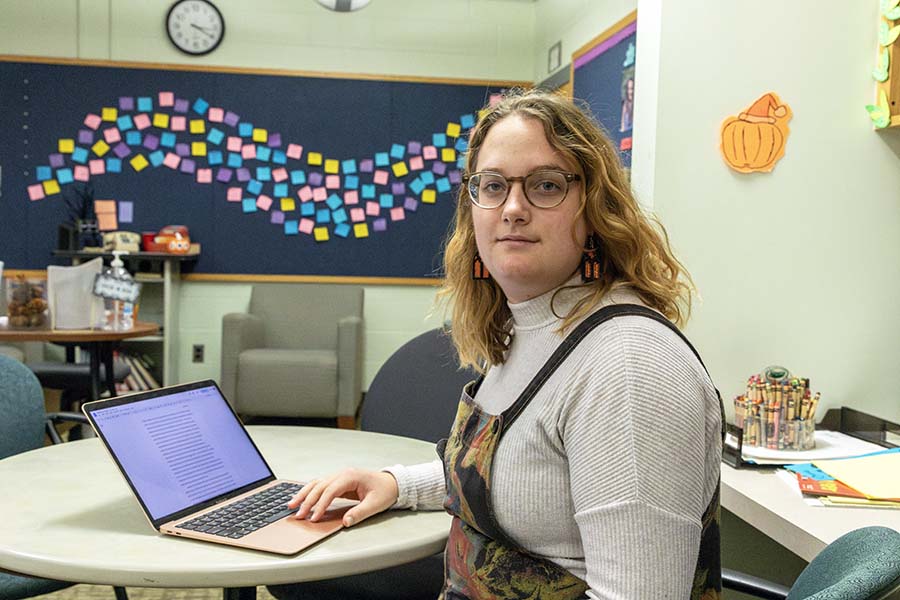Over Thanksgiving break, friends of my parents asked me question after question. At one point, the discussion evolved into the failures of the current media system. As a student journalist, I was put on the stand: “How do we save journalism?” “How did we get here?”
In all honesty, I could point to a myriad of issues. The rise of pink slime journalism, the creation of local news deserts, the siloing of information and a general failure to extend beyond liberal, elite coastal perspectives by some of our largest media moguls. But also, journalist demonization has become a consistent pattern espoused by political figures afraid of accountability. But I think there’s another issue that has been overlooked — the savior complex that the world has foisted upon Gen Z.
This line of questioning I experienced over the holiday break exemplifies this larger problem: throughout my childhood, everyone has held me and my peers up as potential saviors of a broken world. Our generation was raised with the expectation that we would fix the problems — but this ignores the entrenched nature of many systematic issues. Through the Black Lives Matter protests in 2020, increased concern surrounding mental health, a dying environment and other worldly issues, the previous generations pointed to Gen Z as the people who must create the change. And while this is an inspiring position, it is not a realistic one.
Gen Z needs to get to work. But Gen Z is not your savior.
I have been working as The Ithacan’s opinion editor during an era of great tumult for the United States and the world. I’ve edited responses to the 2024 elections, the Israel-Hamas war, discussions of racism and more. Throughout my tenure, many Ithaca College students have expressed their concerns through the opinion section surrounding a world that seems increasingly hostile to their existence. Many students have also stayed silent. And I cannot begrudge our community for their silence — in a world where everything you say comes back to you, sometimes it is better to keep your thoughts to yourself. However, this also means that the viewpoints we have platformed throughout the semester are often of a particular ideology.
In the coming years, I encourage the student body to engage more through a forum of active discussion. Without your viewpoints, we will continue struggling to understand one another. So I hope readers will share their thoughts in a manner that makes space for each other. I also encourage students to be critical of the environment they operate within. Question everything and follow curiosity throughout your tenure at the college and beyond.
A rise in anti-intellectualism, increased purity culture and the normalization of radical conservative ideas reflect the general movement toward the political right in our culture. Highly enforced gender roles, a rise in white nationalism and an alt-right pipeline that targets the masculinity of Gen Z men all point to cultural shifts. While the town of Ithaca is a liberal hotspot, the overall culture has been moving in the opposite direction.
These patterns have connections to our struggling educational system. As a tutor at the Writing Center, I’ve been seeing a general decrease in research and writing skills, academic preparedness, and understanding of the basic tenets of what it takes to succeed at a college level. This is a consistent problem that has risen throughout my three years as a tutor backed up by research throughout the field. We don’t yet know the full consequences of COVID-19 era instruction. Yet, in general, the rise of AI, lowered attention spans and a lack of critical instructive periods have left students with gaps in their knowledge. I’m not saying this is a new pattern, but I’m calling for public attention because I find it concerning. The system is setting up students to fail, which creates a less informed population. These problems in education are indicative of more widespread issues that will make creating positive change difficult.
The student population has been systemically and often intentionally disadvantaged by educational reforms — but education is one of the most critical aspects of true democracy. As the government continues to defund public education through plans like Project 2025, we must pay attention to how this changes education — it affects the ability of students to enter a politically savvy world and increases the gaps between information-based public service jobs like journalism and the audience it serves.
And this is what the system wants. A downtrodden population that is fearful and disconnected from the world does not hold others accountable. The distrust and frustration expressed towards journalists is not misplaced, but it forgets the distraction economy and a world that is attempting to divert and dilute your ability to respond.
I believe in young people’s ability to create change. However, in this current climate, we cannot avoid the responsibility of conversations with our peers. The call has to come from inside the house.
















Lisa Johnston • Dec 6, 2024 at 12:05 pm
Fantastic article! Great job Chloe